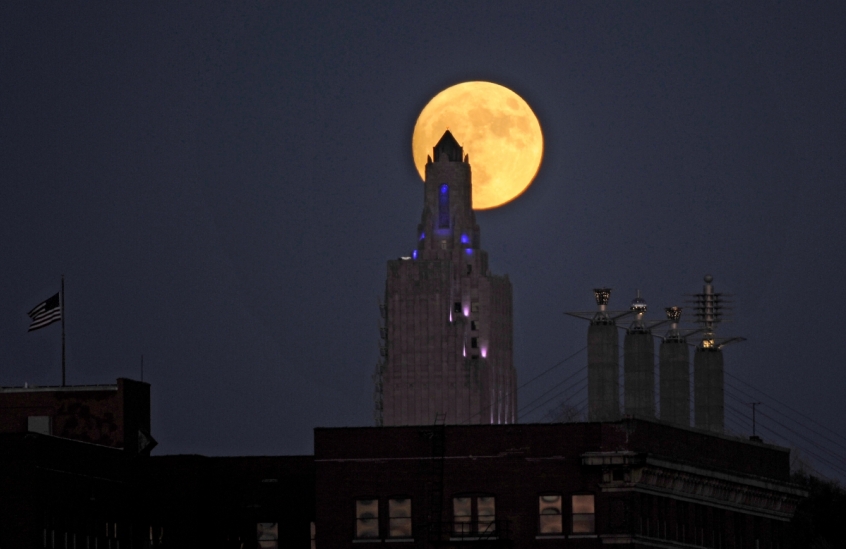
Today will see a 'supermoon' rise, when the moon will appear 14 per cent bigger and 30 per cent brighter than usual. Depending on where in the world you live, you may already have seen it. People lucky enough to have a clear sky will see a beautiful sight tonight. In the UK the moon will appear in all its glory just before 5pm. Because its orbit is elliptical or oval-shaped rather than perfectly round, it's closer to the planet sometimes than at other times. Today sees it approach closer than at any time for the last 69 years. Some Christians see this as one of the signs alluded to in apocalyptic biblical references marking the end of the world and the coming of Christ.
Is it?
No.
A little more detail, perhaps...?
No.
Oh, come on.
Look: it's got nothing to do with anything in the Bible. At all. It's just that the moon is a bit closer to the earth than normal. Go and take a picture of it, unless you live in the UK.
Why not in the UK?
It will probably be raining.
So why do people think there is something apocalyptic about it?
There are biblical verses like Luke 21:25-26: "And there shall be signs in the sun, and in the moon, and in the stars; and upon the earth distress of nations, with perplexity; the sea and the waves roaring; men's hearts failing them for fear..." Joel 2:30-31 says: "And I will show wonders in the heavens and in the earth: Blood and fire and pillars of smoke. The sun shall be turned into darkness, and the moon into blood, before the coming of the great and awesome day of the Lord." Revelation 6:12 says: "I looked when He opened the sixth seal, and behold, there was a great earthquake; and the sun became black as sackcloth of hair, and the moon became like blood."
It sounds terrifying.
That's the idea. But serious scholars doubt that this sort of language is being used to refer to a real dissolution of the material world, and even if it is, there's no way of connecting it to actual astronomical or other events.
You sound a bit sceptical.
I hope I sound a bit biblical. In Genesis 1:14-19 God makes the sun, moon and stars, and they are described as "lights" – they are not signs and portents. It's a way of combating the superstition of astrologers and magicians. We shouldn't fall for this kind of thing. Throughout history there have been people who've claimed to see biblical prophecy fulfilled in astronomical phenomena. They have all been entirely wrong.
But there have been earthquakes, haven't there?
Yes, but that's probably just a coincidence; though there's a school of thought that says the increased gravitational pull of the moon could help trigger them. Either way, it's not the end of the world.
What about the opening of Jesus' tomb, some say that's relevant?
The Church of the Holy Sepulchre is being repaired. It's a building project, that's all – again, it's not the end of the world.
And what about the other thing – you know, Donald Trump?
Let's just leave it there, shall we?
Follow Mark Woods on Twitter: @RevMarkWoods













